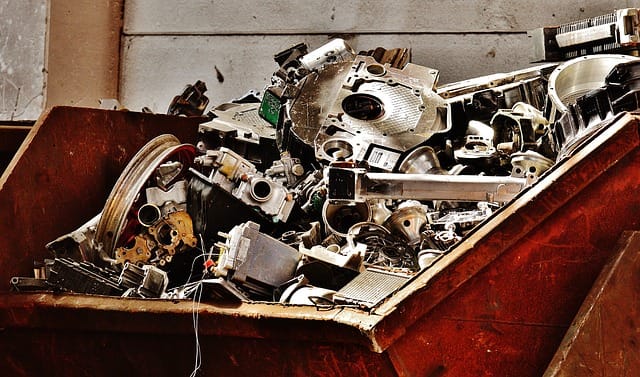
On March 18, 2019, the Federal District Court for the Northern District of New York approved a Consent Decree requiring the payment of a $100,000 civil penalty and resolving Clean Water Act claims against the owners and operators of a metal recycling facility in the City of Rensselaer, including the manager of the facility.
First, a bit on consent decrees. As we’ve noted in a previous blog, a consent decree is typically an administrative agency contract with a private party that is filed in a federal or state court as the whole or partial settlement of a litigation. They are not to be confused with consent orders, which are not filed with a court as a part of litigation (although we can see why someone would confuse the two).
Turning back to the Rensselaer scrap metal facility, the federal government filed a complaint in 2016 (United States of America vs. Grimmel Industries, LLC et al., 1:16-cv-1103, N.D.N.Y.) alleging the defendants’ failure to comply with the conditions of their stormwater discharge permit issued by the New York State Department of Environmental Conservation. The federal government’s complaint sought civil penalties and injunctive relief for eleven alleged violations of the permit, including: effluent discharges in excess of permitted limits for mercury and polychlorinated biphenyls (PCBs), failure to take and report corrective actions when exceedances of effluent limitations occurred, inadequate permit coverage and stormwater pollution prevention plans (SWPPP), improper implementation of SWPPP, failure to conduct quarterly visual monitoring, failure to timely submit reports, failure to perform annual dry weather flow monitoring, inadequate responses to benchmark exceedances, and failure to train employees.
The consent decree dismissed the facility manager from the suit and entitled him to the benefits of a Covenant Not To Sue. However, the remaining two corporate defendants had to pay a $100,000 civil penalty. The consent decree also provided that the remaining defendants had to take a number of steps to address the alleged violations including revisions of the SWPPP, investigation of certain drainage features at the facility, elimination of stormwater discharges from a catch basin under a material storage pile, removal of scrap metal and other waste material from under a pier at the facility, and installation of a berm to prevent migration of debris and stormwater to a neighboring property. After the defendants complete the requirements and thereafter maintain compliance for 12 months, the consent decree may be terminated.
As illustrated by this case, it is important to comply with the conditions of a stormwater discharge permit or make attempts to correct any chronic violations, in order avoid large governmental fines and penalties. If your facility is subject to state or federal stormwater discharge permits, it is always subject to scrutiny from the regulators; ignoring repeated violations of unpermitted discharges will only serve to enhance any potential penalties.
Call the attorneys of Periconi, LLC at (212) 213-5500 for more information on stormwater discharge permits, compliance issues or if you have been served with a lawsuit from the state or federal government alleging non-compliance with a stormwater discharge permit.

